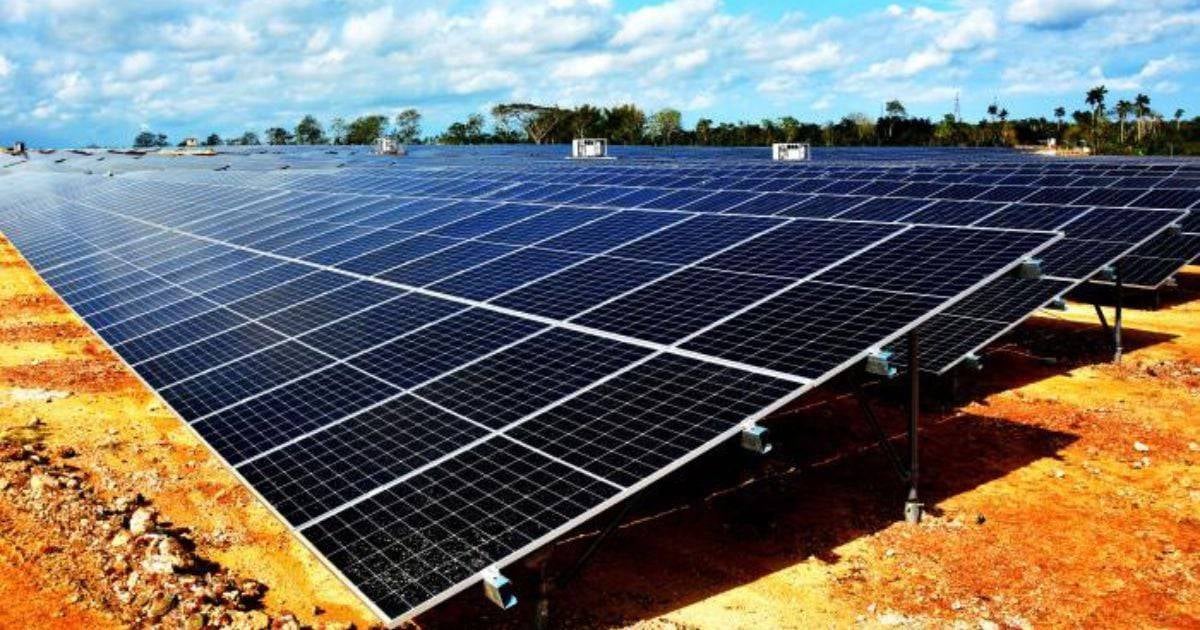In the midst of an unprecedented energy crisis, characterized by a crumbling electrical infrastructure and widespread blackouts affecting millions of Cubans, Cuba has partnered with Japan to launch an ambitious renewable energy initiative. This collaboration, supported by the Japan International Cooperation Agency (JICA), aims to revitalize Cuba's electricity distribution and generation systems, which have been severely neglected due to insufficient investment and maintenance.
According to Prensa Latina, the project involves experts from West Japan Engineering Consultants, Inc. (WJEC), Tokyo Electric Power Services Co., Ltd (TEPSCO), and Yachiyo Engineering Co., Ltd (YEC). During a recent meeting in Havana, specialists from the Cuban Electric Union (UNE) and representatives from these Japanese entities outlined the project's objectives, which are set to span two years. The goal is to enhance the management and control of the electrical distribution and generation system while promoting the integration of clean energy sources.
Steps Toward Sustainable Energy
Cuba set a target in 2014 to generate 24% of its electricity from renewable sources by 2030. However, progress has been limited due to outdated infrastructure and frequent power outages, prompting the island nation to seek international technical assistance.
Training as a Key Component of Energy Transition
The Japanese initiative also includes training for Cuban personnel responsible for operating the electrical grid, aiming to create a more stable, secure, and reliable system that can handle the challenges posed by the widespread adoption of renewable energy. This endeavor represents another test for Cuba's National Electric System (SEN) and an opportunity for the country to move toward a more sustainable and resilient energy model amid its ongoing energy crisis.
Persistent Instability
While the JICA-supported project seeks to overhaul Cuba's energy infrastructure, the island remains highly vulnerable due to inadequate generation capacity, structural issues at thermoelectric plants, and fuel shortages. On Wednesday, Havana's Electric Company announced emergency measures, including planned power cuts during the early morning hours, to address the persistent generation deficit plaguing the SEN.
Despite the government's efforts in March to connect six solar parks to the national grid, blackouts persist. Even the regime's own authorities acknowledge that solar generation alone will not fully resolve the electricity shortfall. Meanwhile, the Cuban government continues to rely on temporary solutions that fail to address the core issues, increasingly disrupting the daily lives of its citizens.
Understanding Cuba's Energy Challenges
What is the goal of the Cuba-Japan renewable energy project?
The project's goal is to improve Cuba's electricity distribution and generation systems while integrating clean energy sources, with the support of Japanese expertise.
Who are the key participants in this initiative?
Key participants include experts from West Japan Engineering Consultants, Inc. (WJEC), Tokyo Electric Power Services Co., Ltd (TEPSCO), Yachiyo Engineering Co., Ltd (YEC), and the Japan International Cooperation Agency (JICA).
How does the Cuban government plan to address the ongoing blackouts?
The government has implemented emergency power cuts and connected six solar parks to the national grid, but these measures are insufficient to fully resolve the energy crisis.
